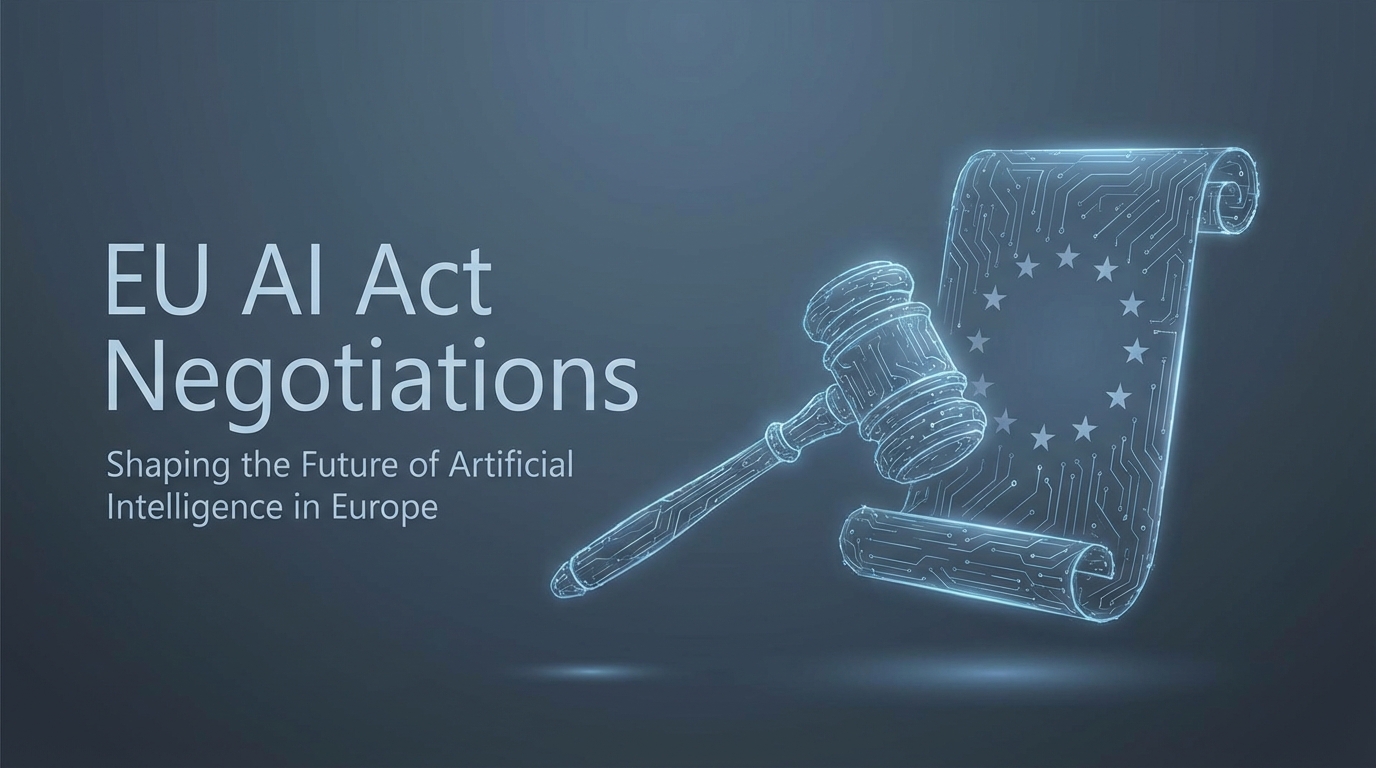Outcomes of the Final EU AI Act Negotiations
January 2024

Prohibited Systems
The latest round of negotiations has led to a political agreement to prohibit several controversial technologies:
- Social Scoring: Systems that exploit vulnerabilities or use manipulative techniques.
- Facial Scraping: Creating databases by scraping images from the internet (e.g., Clearview AI).
- Emotion Recognition: Prohibited in workplaces and education, with narrow exceptions.
- Predictive Policing: Individual risk assessments to infer criminal likelihood.
- Biometric Categorization: Based on sensitive traits like race or religious beliefs.
Severe Penalties for Non-Compliance
The repercussions for violating these rules are significant. Organizations could face:
- Fines up to 35 million euros or 6.5% of global turnover for using banned applications.
- Fines up to 15 million euros or 3% for high-risk system violations.
- Potential market bans for the most serious infractions.
Impact on Open Source
The Act aims to support innovation by exempting free and open-source components from most regulations, unless they are part of a high-risk system. It recognizes the economic value of the open-source ecosystem, estimated at up to EUR 95 billion for the EU GDP.